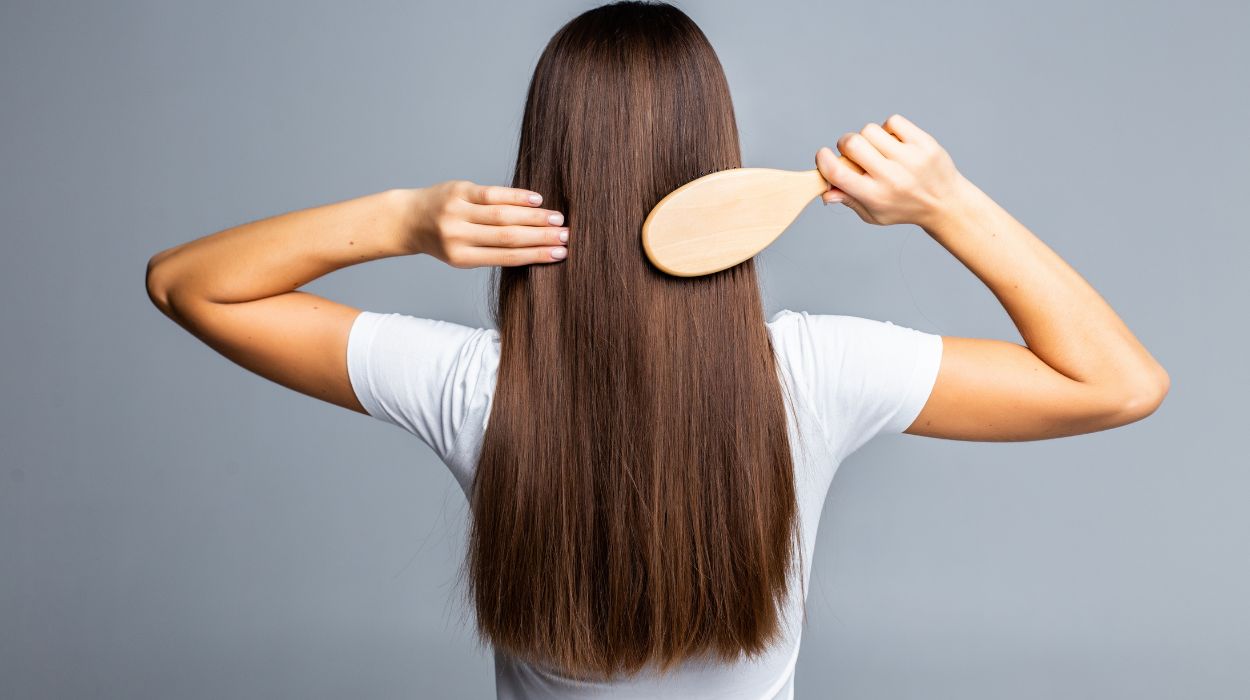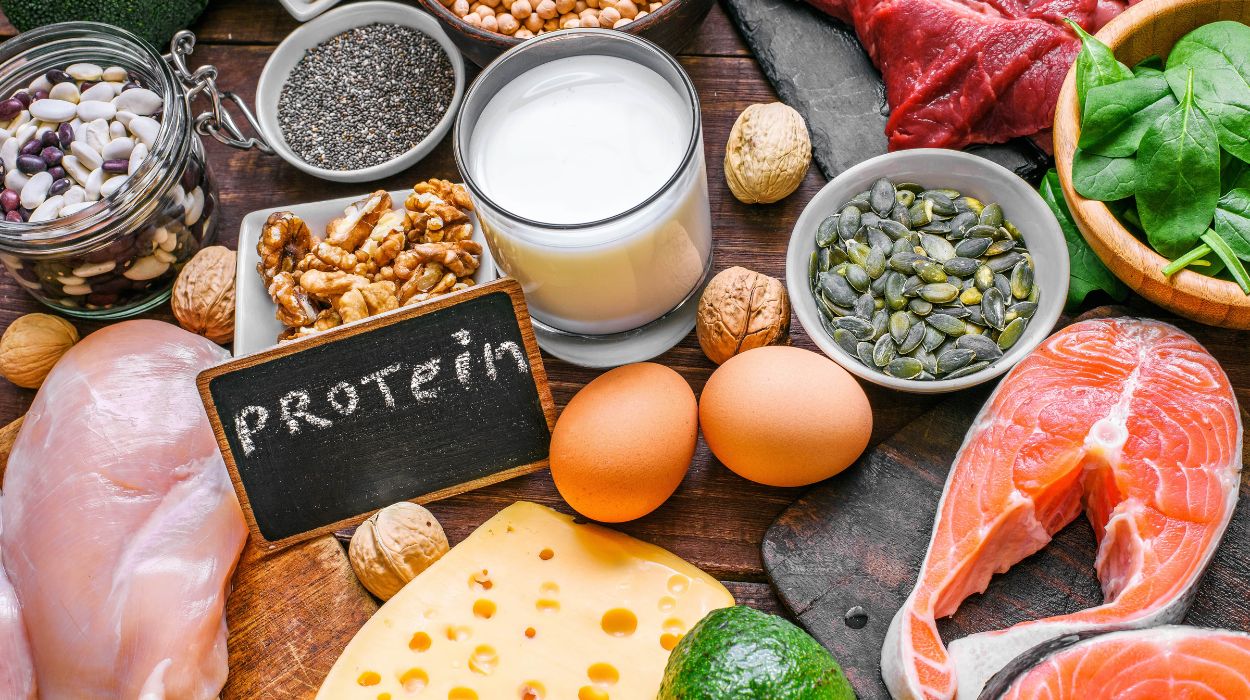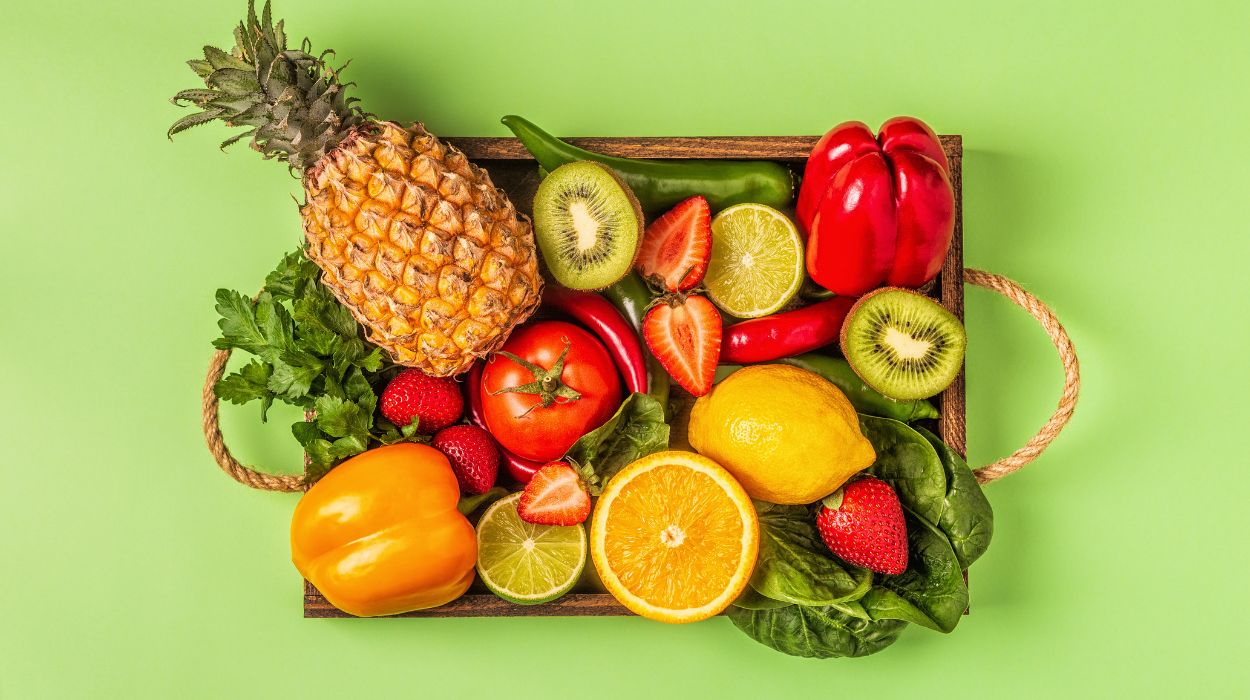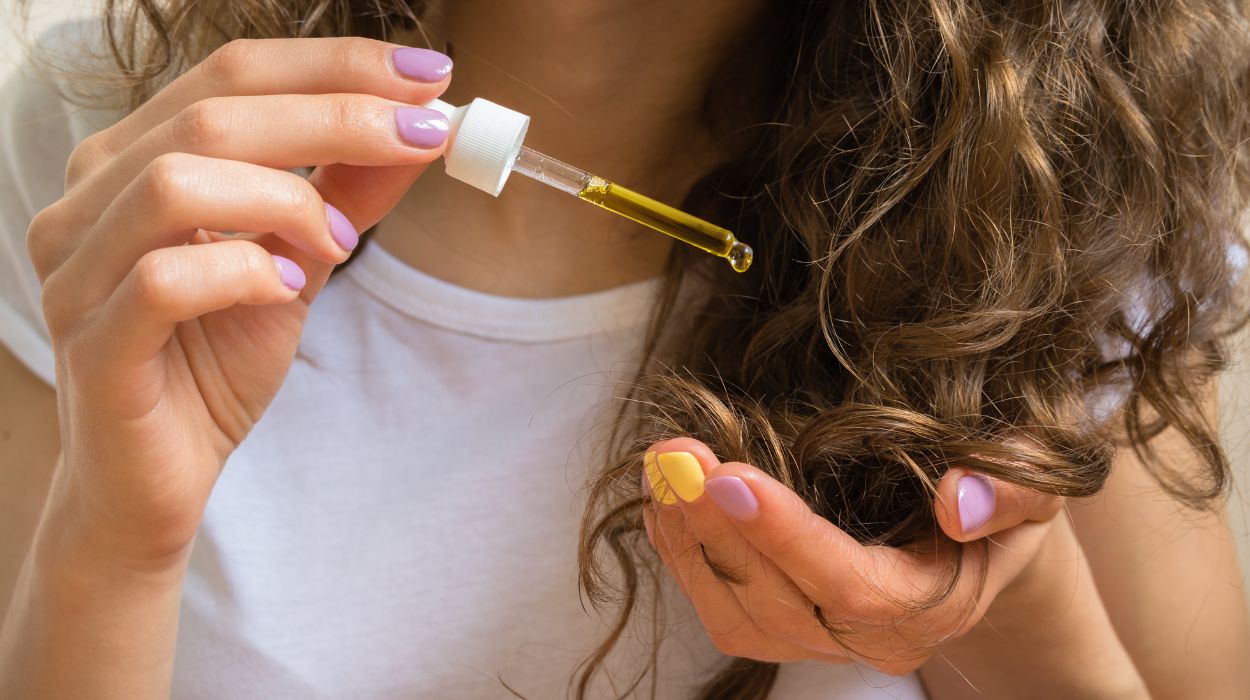 Expert's opinion
Expert's opinion
Expert's opinion
The article is a subjective view on this topic written by writers specializing in medical writing.
It may reflect on a personal journey surrounding struggles with an illness or medical condition, involve product comparisons, diet considerations, or other health-related opinions.
Although the view is entirely that of the writer, it is based on academic experiences and scientific research they have conducted; it is fact-checked by a team of degreed medical experts, and validated by sources attached to the article.
The numbers in parenthesis (1,2,3) will take you to clickable links to related scientific papers.
How To Strengthen Hair 2024: Tips On How To Make Hair Stronger

Most of us associate strong and thick hair with hair health. We might get discouraged when we notice it falls or breaks easily. We also ask ourselves how to strengthen our hair when wanting to stimulate hair growth or moisturize dry hair.
There always seem to be more ways to damage our hair than to promote strong and healthy hair growth. This is not impossible, though. Read on for helpful tips to strengthen your hair strands and boost hair growth.
7 Best Methods To Strengthen Hair
Do these to grow your hair strong:
- Eat protein-rich foods.
- Don’t forget your fruits and vegetables.
- Massage your scalp in the shower.
- Use some nourishing hair oils.
- Get treatment for scalp/hair conditions.
- Trim your split ends.
- Avoid tight hairstyles or frequent heat styling.
7 Proven Tips On How To Strengthen Hair
Eat Enough Protein

Protein deficiency[1] is rare in most developed countries, but it can be associated with decreased hair growth and increased hair loss. It may also lose pigmentation, making it look dull and brittle. Keratin is a protein that is part of the hair structure. Eating protein-rich foods daily can help make sure your hair grows strong.
MyPlate.gov recommends adults consume 5 to 6-ounce servings of protein daily for general health. These foods include chicken, lean meats, eggs, fish, tofu, and legumes are a source of protein.
Get Your Nutrients From Fruits And Vegetables

Vitamins and minerals[2] from foods participate in hair growth. Eat around three to six servings of fruits and vegetables daily for healthier hair. These food groups behave like superfoods for hair, supporting naturally strong hair growth.
If you suspect hair loss or weak hair might be related to a vitamin deficiency, visit your medical provider for analysis. Talk with your doctor before starting supplements, as some may interact with medications or affect laboratory values. For example, biotin supplements need to be held eight hours to three days before laboratory testing due to false levels, especially for hormone tests and markers of heart attacks.
Massage Your Scalp
Scalp massages may help you prevent hair loss and promote stronger hair growth. The mechanical stress from the scalp massage may help to strengthen your hair, but it will not increase hair density or the amount of hair present on your scalp.
Scalp massages may increase blood flow to the hair follicle, thus increasing nourishment to the hair root and increasing hair strength. The best thing about this process is that it is something you do in the shower with your fingers or a scalp massager for around four minutes.
Consistency might be the key. According to a study with males, who received standardized scalp massages, an increase in hair thickness[3] was noted at the end of the study at 24 weeks. It might be best to practice this every time you wash your hair.
Consider Oils

Oils have been used in different ways on hair. Traditionally some oils are used to promote hair growth or its tensile strength. Some are used to increase melanin in your hair and have it appear darker or lighter, maintaining moisture and a healthy scalp. Although there are not many studies to conclusively prove all these effects of the traditional use of oils on the hair, it may also promote an increase in hair volume.
Almond oil, coconut oil, argan oil, and sesame oil may help increase hair elasticity and promote hair growth.[4] By increasing hair elasticity, it bounces back to normal after stretching and prevents breakage. If you are using oils for hair care, make sure to follow the manufacturer’s instructions. You can also pour some drops on your fingers and massage your scalp. If your hair tends to be oily already, this might not be the best option for you.
Get Treatment
If you have conditions[5] like psoriasis or dandruff, they can affect hair growth and strengthen your hair. These conditions cause oxidative stress in our scalp that affects the structure of the hair and may cause it to grow weak. Working with your medical provider to treat or manage these conditions is important.
In addition, some hormonal imbalances, like thyroid and cortisol, might present themselves as hair loss or changes to the hair. Get evaluated by your medical provider in case you need to stabilize these hormone levels.
Trim Your Ends
Split ends can damage the hair shaft. Consider getting your hair trimmed to protect your hair from breaking easily and maintain great-looking hair.
Prevent Physical Damage
Wearing our hair in a tight hairdo like a ponytail, braids, or buns can cause hair to fall out or hair breakage. In addition, avoid frequent heat or chemical damage to the hair; this affects the strand and causes breakage. When using a hair dryer, keep it at a distance and avoid heat styling on wet hair. Damaged hair might translate to weak hair.
What Causes Weak Hair?
Keeping the 100,000 hairs on our heads healthy takes some work. Our hair grows in phases:[6] Anagen (growing), catagen (transition/end of growth) telogen (resting), and finally, exogen phase (shedding). How we treat ourselves during the growth phase, and our hair during the later phases will determine its health.
Many things can affect our hair’s strength, structure, and volume. Our hair may not grow strong if we are not properly nourished, are stressed, or have problems with our scalp. Many of these affect either the growing phase of the hair or cause the hair to shed faster.
What To Avoid To Prevent Weak Hair
You can prevent weakening your hair by following the previous recommendations. In addition, you can make some small changes in your hair care routine, which can help protect your hair.
Avoid Harsh Chemicals
Strong chemicals like bleaching and relaxers can damage hair, and it might be advisable to avoid these when wanting to keep your hair strong. Remember to visit a hair professional to apply any of these and decrease the possibility of hair damage.
Take a similar approach to when you swim at the pool; protect your hair from chlorine damage by wearing a cap.
Things you can do at home include deep conditioning treatments, hair masks, or using a hot oil treatment to strengthen weak hair roots and hair cuticles.
Manage Stress
Stress[7] has negative effects on the hair follicle and may lead to alopecia areata or hair loss in clumps. Stress can cause increased cortisol levels, which can affect hair growth and cause hair thinning.
We cannot always avoid feeling stressed, but you may be able to manage it. Activities like yoga, meditation, massages, or aromatherapy might help ease stress.[8]
Overwashing Your Hair
Avoid washing your hair more than three times a week. This might strip the shaft of natural oils that keep our hair strong. Also, focus the shampoo on the scalp, and avoid skipping the conditioner. Use both a good shampoo and conditioner every time you wash your hair.
The Takeaway
If you want to strengthen weak hair, it requires some consistency. Eating a balanced diet is one of the main steps to prevent the weakening of your hair. Maintain an adequate protein intake, eat your fruits and vegetables, and include healthy fats in your diet.
In addition, keep your scalp healthy by washing adequately, conditioning your hair, and protecting it from unnecessary stress, and heat.
+ 8 sources
Health Canal avoids using tertiary references. We have strict sourcing guidelines and rely on peer-reviewed studies, academic researches from medical associations and institutions. To ensure the accuracy of articles in Health Canal, you can read more about the editorial process here
- O’Connor, K.E. and Goldberg, L.J. (2021). Nutrition and hair. Clinics in Dermatology, [online] 39(5), pp.809–818. doi:https://doi.org/10.1016/j.clindermatol.2021.05.008.
- Finner, A. (2013). Nutrition and Hair. Dermatologic Clinics, [online] 31(1), pp.167–172. doi:https://doi.org/10.1016/j.det.2012.08.015.
- Koyama, T., Kobayashi, K., Hama, T., Murakami, K. and Ogawa, R. (2016). Standardized Scalp Massage Results in Increased Hair Thickness by Inducing Stretching Forces to Dermal Papilla Cells in the Subcutaneous Tissue. Eplasty, [online] 16, p.e8. Available at: https://www.ncbi.nlm.nih.gov/pmc/articles/PMC4740347/.
- Mysore, V. and Adhikary Arghya (2022). Hair oils: Indigenous knowledge revisited. International Journal of Trichology, [online] 14(3), pp.84–84. doi:https://doi.org/10.4103/ijt.ijt_189_20.
- Tosti, A. and Schwartz, J.H. (2021). Role of Scalp Health in Achieving Optimal Hair Growth and Retention. International Journal of Cosmetic Science. [online] doi:https://doi.org/10.1111/ics.12708.
- Wall, D., Meah, N., Fagan, N., York, K. and Sinclair, R. (2022). Advances in hair growth. Faculty reviews, [online] 11. doi:https://doi.org/10.12703/r/11-1.
- Buffoli, B., Rinaldi, F., Labanca, M., Elisabetta Sorbellini, Trink, A., Guanziroli, E., Rezzani, R. and Luigi Fabrizio Rodella (2014). The human hair: from anatomy to physiology. International Journal of Dermatology, [online] 53(3), pp.331–341. doi:https://doi.org/10.1111/ijd.12362.
- Carlson, L.E., Toivonen, K.I. and Utkarsh Subnis (2019). Integrative Approaches to Stress Management. The cancer journal, [online] 25(5), pp.329–336. doi:https://doi.org/10.1097/ppo.0000000000000395.



